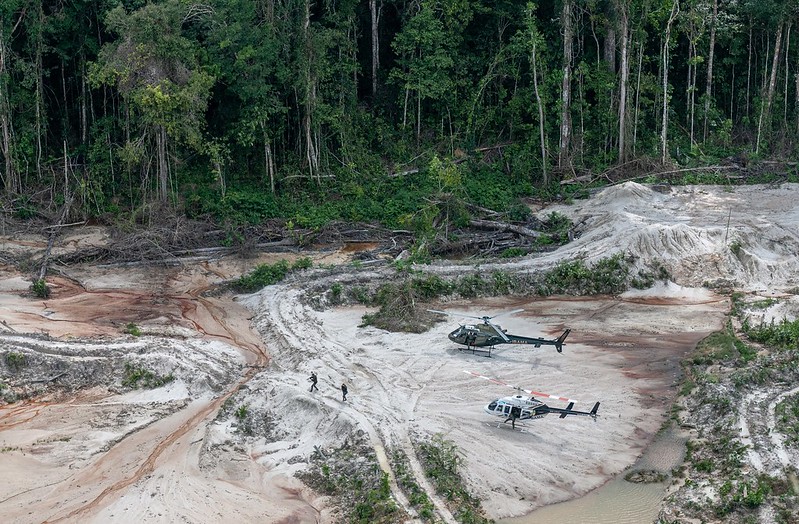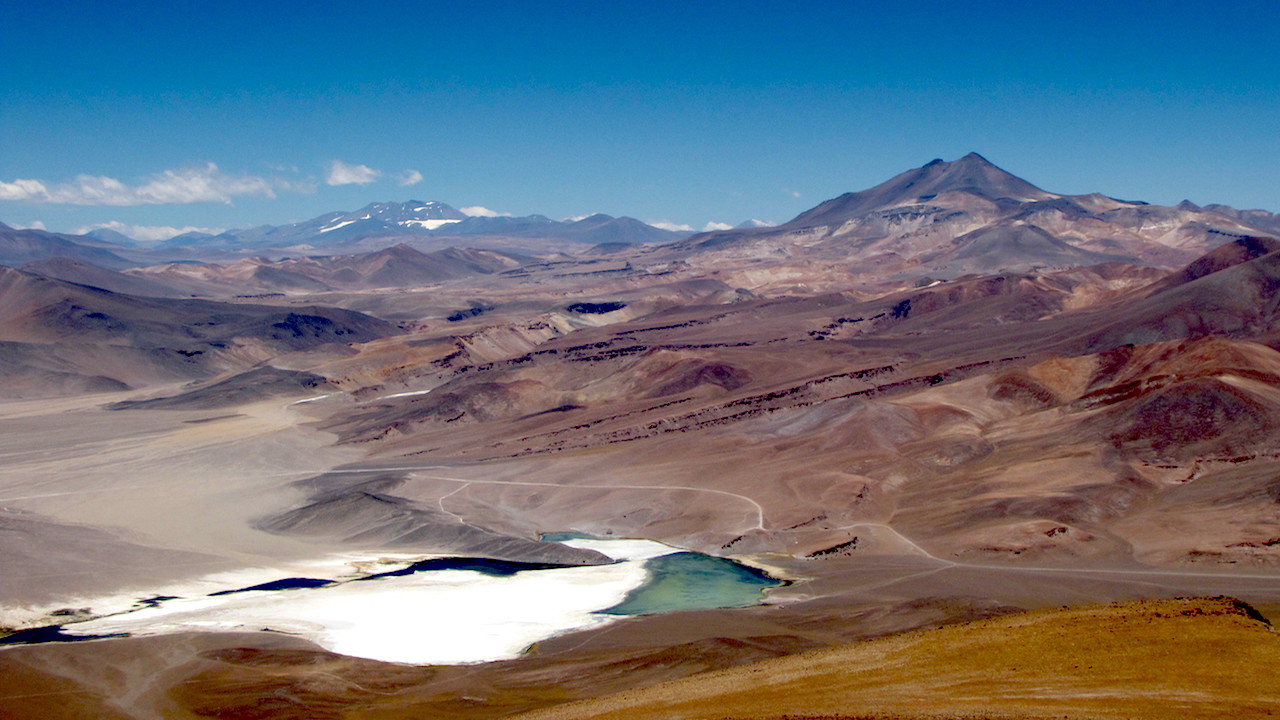Indigenous mining complicates Brazil’s fight against illegal gold

The involvement of Indigenous people in illegal gold hunting, lured by the prospect of easy money due to record prices, has made Brazil’s task of cracking down on wildcat mining in the Amazon far harder, environmental agents and police say.
The Munduruku territory, a reservation the size of Switzerland on the Tapajos river, a major Amazon tributary, has become a hot spot for illegal mining, which Brazilian law bans on Indigenous land.
But increasingly, Munduruku tribe members are entering the illegal trade that is backed by organized crime.
On a recent enforcement operation by Brazil’s environmental protection agency IBAMA, agents swooped down in helicopters on muddy tailing ponds to find a camp in a clearing, but the miners had fled, alerted by the noise of the approaching choppers.
A pressure cooker on a gas stove was still hot, and dogs barked. The agents destroyed two motors used to pump water through filters to trap nuggets of gold. They said the hammocks and clothing were evidence the miners were Indigenous.
Gold mining has brought division within the Munduruku tribe, a majority of whom believe it is wrong, though their leaders say lack of government assistance forces people to seek other ways to deal with poverty.
On one recent morning, panhandler Samuel Manga Bal found 60 grams of gold on the river: 20 times his usual daily amount.
But his brother Domingo was furious and threatened to kill him if he continued, so he was forced to leave their village.
“He wanted me gone,” said Manga Bal, now living off growing manioc, but intending to return to mining when he can.
“I’m going to go back to mining, because things are so bad now. We don’t even have coffee, there’s no sugar, nothing, no food, just manioc flower.”
The reservation is located in the municipality of Jacareacanga, a booming town of 26,000 people, where large 4×4 pickups roar along mostly unpaved streets and shops openly buy gold from miners. Trucks arrive carrying heavy backhoes and uploaders used to dig prospecting ponds.
Money-maker
Despite visible poverty, Jacareacanga’s per capita GDP is 90,000 reais ($15,157.38), higher than Sao Paulo, Brazil’s largest metropolis, a sure sign of the illegal wealth gold mining is generating.
Very little taxation is collected, even though the trading of gold is public for all to see in Jacareacanga.
President Luiz Inacio Lula da Silva has pledged to wipe out illegal mining that boomed under his far-right predecessor Jair Bolsonaro and has become harder to repress across the Amazon.
Evicting miners has become more difficult on the Munduruku territory now that tribe members are looking for gold. Tribal leaders estimate 40% of the gold mining on the reservation is carried out by Indigenous people today.
To make matter worse, local police officers have been taking bribes from a gold mining business to turn a blind eye, according to a document seen by Reuters.
In a village 10 minutes away by boat, local Chief Jonathan Kaba Biorebu said the way to stop illegal mining is to tap funding for sustainable development. He suggested selling carbon credits to companies seeking offsets for pollution.
His village has benefited from a carbon credit deal signed by the local Pusuru Indigenous Association that plans to build 40 wells for drinking water. The association built its offices in the Jacareacanga with carbon credit funding.
But Kaba Biorebu is skeptical that carbon credit will become so common as to generate enough income to replace gold mining.
The non-Indigenous population of Jacareacanga are all for legalizing the informal mining, known as “garimpo” in Portuguese.
“The income here is gold mining,” said general store owner Claudemir Pereira. “The majority of the population here depends on this, even the indigenous people, many of whom work mine for gold to survive.”
The government coordinator for expelling gold mining from Indigenous territories, Nilton Tubino, dismissed legalization and said big mining companies have lobbied against it. A bill to legalize informal mining is stalled in Congress.
(By Ricardo Brito, Adriano Machado and Anthony Boadle; Editing by Andrew Cawthorne)
{{ commodity.name }}
{{ post.title }}
{{ post.date }}




Comments